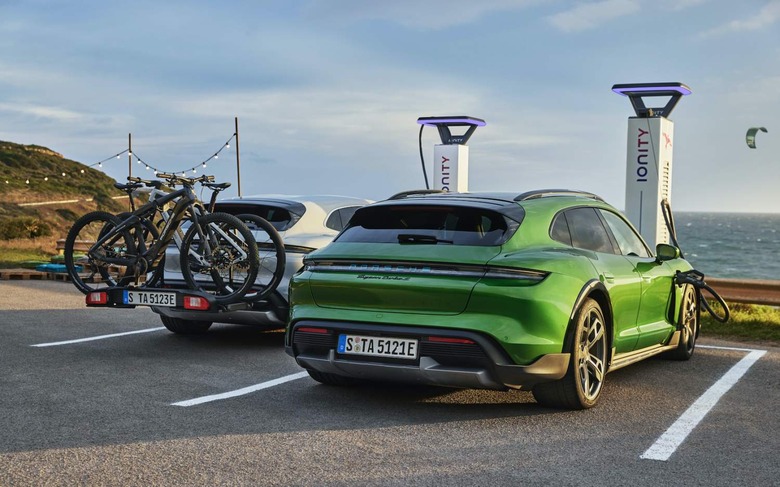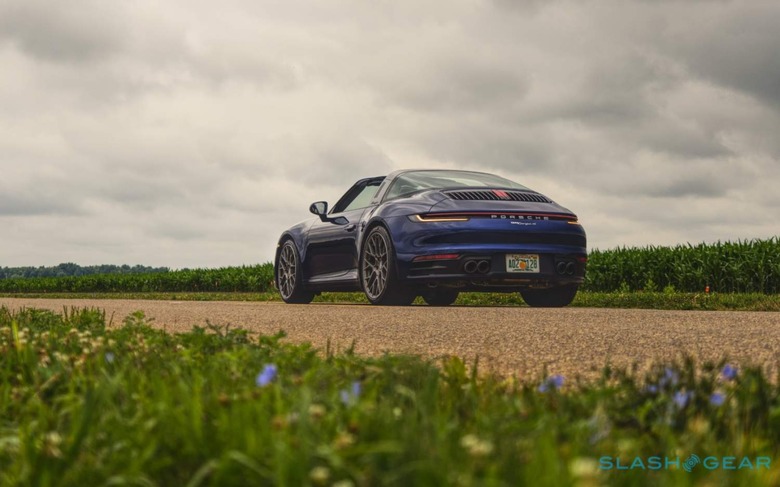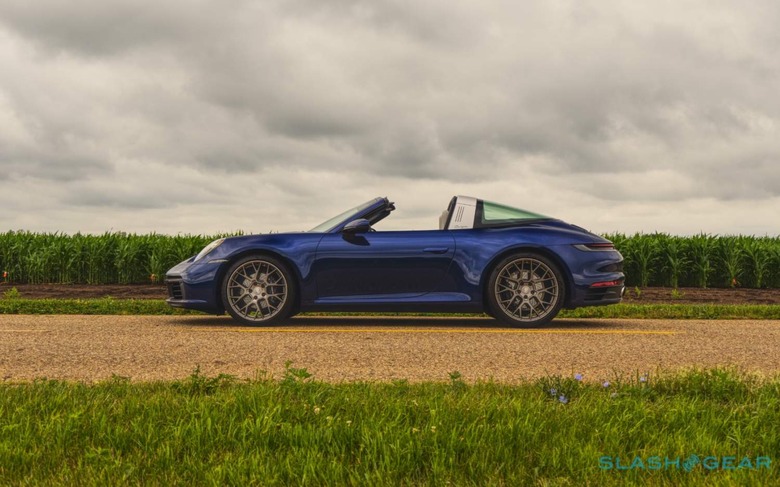The Electric 911 Is Giving Porsche A Carbon-Neutral Headache
Porsche is punting the iconic 911 to the back of the line as it works to electrify its performance car range, with a full-EV version proving to be a challenge that the German automaker may simply give up on. The company recently announced its second all-electric model, the Taycan Cross Turismo, a crossover-wagon version of the Taycan sedan, though it's also gung-ho about plug-in hybrids.
Porsche said this week that it's aiming for a CO2 neutral balance sheet by 2030, building on the shift to carbon-neutral operations at its major sites including Zuffenhausen, Weissach, and Leipzig. Over 20,000 Taycan EVs were delivered in 2020.
"We've earmarked more than a billion euros for decarbonization over the next 10 years," Oliver Blume, Chairman of the Executive Board of Porsche AG, confirmed. "We've reached the first milestone: the Taycan Cross Turismo, which had its world premiere at the beginning of March, is the first vehicle that will be CO2-neutral throughout the use phase."

Also by 2030, meanwhile, Porsche aims to have at least 80-percent of its vehicles be electrified. That doesn't mean, of course, that they'll be all-electric BEVs. Porsche plans to offer a mixture of hybrids and fully-electric models, though some are easier to upgrade with EV tech than others.
SUVs and crossovers like the Cayenne and Macan should be fairly straightforward, for example. The Panamera and Panamera Sport Turismo are already offered in PHEV form. However the 911 – with its rear engine layout – is more of a headache.
Indeed Porsche expects that the majority of the outstanding 20-percent of non-electrified vehicle sales by 2030 to be of 911 models, Blume said, CNBC reports. "The 911 is our icon. We will continue to build the 911 with a combustion engine," he explained. "The concept of the 911 doesn't allow a fully electric car because we have the engine in the rear. To put the weight of the battery in the rear, you wouldn't be able to drive the car."

Instead, Porsche will apply what Blume describes as "very sporty hybridization" to the 911. Back in 2018, Porsche execs confirmed that the current generation of the car wouldn't be offered in electric form, though conceded that electrification would have its place later on. One possibility is using an electric motor with a much smaller battery, combined with a gas engine to fill in gaps in the internal combustion power curve, as well as to bridge dips in power during gear changes.
Trying to figure out battery packaging in performance vehicles isn't a problem limited to Porsche, of course. Lamborghini has long maintained that it doesn't envisage a fully-electric model of its sports cars being offered until battery technology cuts weight and improves on power density. Speed of charging is also a primary concern, with the Italian automaker convinced that owners won't be willing to wait during track days for their performance EV to recharge.
Elsewhere, hybrid sports cars have been demonstrating their potential. McLaren's Artura, announced in mid-February, is one such example, pairing a twin-turbocharged 3.0-liter V6 gas engine with an electric motor and an energy-dense battery pack. The result is 671 horsepower, with McLaren claiming the hybrid can do 0-60 mph in 3.0 seconds, but also drive up to 19 miles (WLTP) on electric power alone.

Such a strategy could be one Porsche chooses to adopt. The automaker has already flirted with the possibility, with 2019's hybrid Porsche 718 prototypes pairing gas and electric. It's also exploring e-fuels, which would allow internal combustion engines to still operate as normal, but with what Porsche says would be carbon-neutral emissions.
